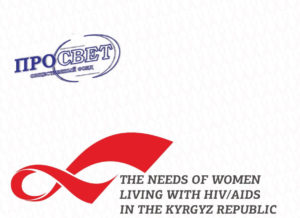 Community-based participatory research report “The needs of women living with HIV/AIDS in the Kyrgyz Republic”
Community-based participatory research report “The needs of women living with HIV/AIDS in the Kyrgyz Republic”
Women and girls with HIV infection are culturally, socially, biologically and economically more vulnerable than men. The lack of reliable statistics, misconceptions about HIV transmission routes, stigma and discrimination on the part of society lead to the fact that HIV-positive women face many problems.
For several years in the Kyrgyz Republic, there has been a trend towards increased sexual transmission of HIV. The most vulnerable groups, along with injecting drug users (IDU), are women. HIV infection affects a whole range of problems – psychological, social and spiritual. Women, living in the conditions of “traditional culture”, are in a more difficult situation; gender inequality, which exists in the initial ethno-cultural environment, strengthens their social and economic problems. Women in particular, whose HIV status creates obstacles for the realization of basic needs, are particularly vulnerable in this regard, and therefore it has a negative impact on their quality of life. At present, services for HIV positive people (HPP) in the Kyrgyz Republic are universal, not taking into account the gender, which often limits access to legal, social, psychological and medical support for women living with HIV (WLH).
Despite the urgency of the problem, in the Kyrgyz Republic there was no systematic study conducted to reveal the needs of WLH, identifying factors that affect the quality of their lives and the barriers to obtaining services.
Read the research here.



